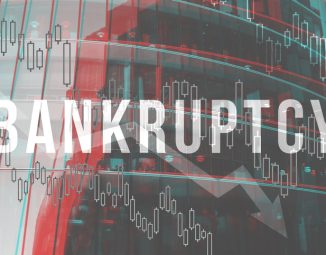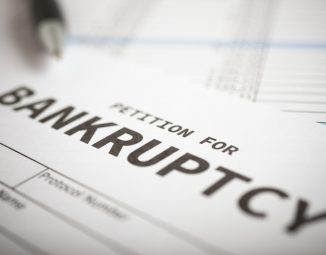Sweet Defense: The Eleventh Circuit Rules Ice Cream Maker’s New Value Not Need to Remain Unpaid to be Valid Preference Defense
The Eleventh Circuit in Kaye v. Blue Bell Creameries, Inc. (In re BFW Liquidation, LLC)[1] recently joined the majority of those Circuits Courts having ruled on the issue that subsequent new value does not need to remain unpaid to be a valid defense to preference avoidance. Preference avoidance actions are by far the most common form of litigation brought within bankruptcy cases and subsequent new value is the defense most frequently invoked by trade vendors defending such actions. Finding the plain meaning of the statute to compel such a result, the Blue Bell Creameries decision reflects the recent judicial trend not to require subsequent new value to remain unpaid to be a viable defense. The comprehensive analysis of the Blue Bell Creameries ruling should be highly influential to the Third Circuit which has yet to issue a definitive ruling on the paid/unpaid question of subsequent new value.
The Bankruptcy Court Decision
The Debtor was a grocery store chain with more than 60 locations in Florida and Alabama. Blue Bell sold ice cream and related products to the Debtor on credit. The Debtor traditionally paid Blue Bell twice a weekly. However, when the Debtor began to experience a tightening of liquidity it reduced the frequency of payments to its vendors from twice to only once a week. While under this new payment practice the Debtor would ultimately pay Blue Bell for the products that it had delivered, it would take longer to do so and at irregular intervals, particularly during the 90-day period preceding its bankruptcy petition.
The Trustee of the Debtor brought adversary proceeding against Blue Bell to avoid as a preference the $563,869 that the Debtor had paid to Blue Bell during the 90-day period preceding its bankruptcy. The Bankruptcy Code, under section 547, permits a Debtor or Trustee to avoid and recover for the benefit of the estate certain payments made to its creditors during the 90-day period preceding the petition date. Blue Bell asserted two defenses to the Trustee’s preference claims: first, that they were made in the ordinary course of business and thus protected from avoidance under section 547(c)(2) and second, that Blue Bell was entitled to an offset of liability under section 547(c)(4) for any products that it delivered after the challenged payments.
In light of the dramatic change in payment practices, the bankruptcy court rejected Blue Bell’s ordinary course of business defense. Turning to the ordinary course of business defense, the bankruptcy court concluded that Blue Bell was entitled to an offset in avoidance liability only to the extent that any new value it extended to the Debtor during the preference period “remained unpaid” as of the petition date. In making this ruling, the bankruptcy court relied the case of Jet Florida Systems [2] in which the Eleventh Circuit stated that the subsequent new value defense of section 547(c)(4) had “generally been read to require . . . that the new value must remain unpaid.” Because Blue Bell was paid for many of the products that it had delivered, the bankruptcy court concluded that Jet Florida prevented Blue Bell from using the new-value defense to defeat the Trustee’s efforts to avoid such payments. Any invoice that the Debtor had paid was excluded from the amount of new value that Blue Bell could use to offset its preference liability. Excluding the paid new value, the bankruptcy court concluded that the Trustee could claw back $438,496 of the $563,869.
The Direct Appeal to the Eleventh Circuit
Blue Bell requested and was granted permission to appeal the bankruptcy court’s opinion directly to the Eleventh Circuit, thus bypassing the district court. On appeal to the Eleventh Circuit, Blue Bell argued that the statement in Jet Florida — suggesting that new value must remain unpaid to be a valid defense — is dictum and that the statute does not impose any such requirement. Dictum is defined as those portions of a legal opinion that are not necessary to the holding of the case and thus are not binding on other courts.
The underlying question presented in Jet Florida was whether leased premises that were unused by the debtor during the preference period nevertheless conferred a “material benefit” sufficient to constitute “new value.” Observing that the factual issues of Jet Florida did not involve whether new value was paid or not, the Eleventh Circuit concluded that the statement in that case indicating that new value must remain unpaid was dictum and not binding precedent and that the Court was free to give “fresh consideration” to this question.
To begin its analysis of whether section 547(c)(4) requires new value to remain unpaid, the Eleventh Circuit looked to the language of the statute to see if it was plain or ambiguous and susceptible to more than one reasonable interpretation. The subsequent-new-value defense of section 547(c )(4) states:
- (c) The trustee may not avoid under this section a transfer— . . . .
- (4) to or for the benefit of a creditor, to the extent that, after such transfer, such creditor gave new value to or for the benefit of the debtor—
- (A) not secured by an otherwise unavoidable security interest; and
- (B) on account of which new value the debtor did not make an otherwise unavoidable transfer to or for the benefit of such creditor . . .
The Eleventh Circuit noted that nothing in the language of section 547(c)(4) indicates that an offset to a creditor’s § 547(b) preference liability is available only for new value that remains unpaid. Instead, it found that the plain language of the statute requires only that (1) any new value given by the creditor must not be secured by an otherwise unavoidable security interest and (2) the debtor must not have made an otherwise unavoidable transfer to or for the benefit of the creditor on account of the new value given. While acknowledging that the double-negatives in the statutory language make for some difficult parsing, the Eleventh Circuit nevertheless concluded that by its plain terms, the statute only excludes “paid” new value that is paid for with “an otherwise unavoidable transfer.” As long as the transfer that pays for the new value is itself avoidable, that transfer is not a barrier to assertion of the subsequent-new-value defense. If the debtor paid for the new value with an “otherwise unavoidable transfer,” then the creditor cannot use that new value as a defense against the trustee’s attempt to avoid an earlier preference. Conversely, if the debtor makes a payment for the new value that is itself avoidable, then the creditor can avail itself of the new-value defense. Thus, the language of the statute does not limit the inquiry to simply whether or not the creditor was paid; but instead focuses on whether, if payment was received, that payment — or transfer on account of the new value — was otherwise unavoidable.
Based on its conclusion that the statute was unambiguous, the Eleventh Circuit held that the plain meaning of section does not require subsequent new value to remain unpaid to be a valid defense to preference avoidance. In doing so, the Eleventh Circuit joined the Fourth, Fifth, Eighth, and Ninth Circuits[3] in rejecting the notion that section 547(c)(4) requires new value to remain unpaid.
Having determined that the plain meaning of the statute compelled its conclusion, the Eleventh Circuit could have ended its analysis there. However, perhaps recognizing the importance of its decision and its potential impact on other Circuits that have yet to encounter the issue, the Eleventh Circuit continued its comprehensive analysis.
The statutory history supports the conclusion that subsequent new value need not remain unpaid
The predecessor statute to section 547(c)(4) contained explicit language that subsequent new value must remain unpaid. However, when Congress repealed the provision in 1978, the “remaining unpaid” language was removed and replaced with the current requirement that the debtor “not make an otherwise unavoidable transfer to or for the benefit of ” the creditor who gave new value.
Policy considerations of promoting access to credit for troubled businesses
One of the principal policy objectives underlying the preference provisions of the Bankruptcy Code is to encourage creditors to continue extending credit to financially troubled entities while discouraging a race to the courthouse. Requiring new value to “remain unpaid” would hinder the policy objective of encouraging vendors to continue extending credit to financially troubled debtors, especially where the vendor and the debtor regularly engaged in relatively short-term credit transactions. If new value must remain unpaid, then vendors who sense that a debtor is in financial difficulty will have an incentive to stop delivering any goods because any payments they receive, after extension of a short-term period of credit on these deliveries, might be avoided and clawed back by the trustee in bankruptcy. By encouraging creditors to continue extending credit to financially troubled debtors, section 547(c)(4) has the potential to help such debtors avoid bankruptcy altogether.
What does this mean for the Third Circuit?
The case of In re N.Y. City Shoes[4] has often been miscited in support of a claim that the Third Circuit requires subsequent new value to remain unpaid to be a viable defense to preference avoidance. The issue in N.Y. City Shoes involved the timing of when a post-dated check was “received” for purposes of preference avoidance. In its decision, the Third Circuit stated that if a creditor satisfies all three elements of section 547(c)(4) “it is entitled to set off the amount of the ‘new value’ which remains unpaid on the date of the petition against the amount which the creditor is required to return to the trustee on account of the preferential transfer it received.” This “unpaid” language has engendered a great deal of confusion within the Third Circuit on whether new value must remain unpaid in order for the affirmative defense to apply.
However, the Third Circuit later clarified in In re Friedman’s Inc.[5] that the new value defense test outlined in N.Y. City Shoes was dicta, since the issue there involved the proper date of the transfer and did not depend on whether the new value was paid or unpaid, and as such is not binding upon future courts. To date, the Third Circuit has yet to weigh in on whether subsequent new value needs to remain unpaid.
There is a recent judicial trend not to impose a requirement that subsequent new value remain unpaid. Blue Bell Creameries joins the majority of Circuits Courts in ruling that subsequent new value does not need to remain unpaid to be a valid defense to preference avoidance. Given the comprehensive scope of Blue Bell Creameries and the strength of its reasoning, it is highly likely that the Third Circuit would join the majority when it ultimately encounters the issue.
[1] Kaye v. Blue Bell Creameries, Inc. (In re BFW Liquidation, LLC), 899 F.3d 1178 (11th Cir. 2018)
[2] In re Jet Florida Systems, Inc., 841 F.2d 1082 (11th Cir. 1988)
[3] See Hall v. Chrysler Credit Corp. (In re JKJ Chevrolet, Inc.), 412 F.3d 545, 551-52 (4th Cir. 2005); Jones Truck Lines, Inc. v. Cent. States, Se. & Sw. Areas Pension Fund (In re Jones Truck Lines, Inc.), 130 F.3d 323, 329 (8th Cir. 1997); Mosier v. Ever-Fresh Food Co. (In re IRFM, Inc.), 52 F.3d 228, 231-33 (9th Cir. 1995); Laker v. Vallette (In re Toyota of Jefferson, Inc.), 14 F.3d 1088, 1090-93, 1093 n.2 (5th Cir. 1994).
[4] In re N.Y. City Shoes, Inc., 880 F.2d 679 (3d Cir. 1989)
[5] In re Friedman’s Inc., 738 F.3d 547 (3d Cir. 2013)





